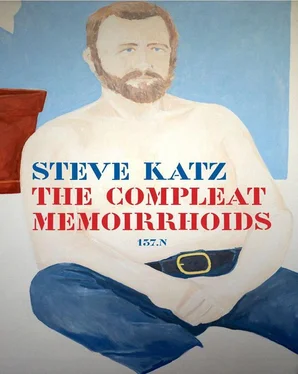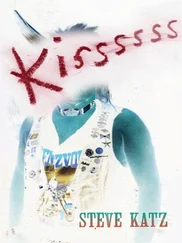One of the situations I had to police was a surfeit of pot. Many of the students packed plenty of it, thinking to sell it on the way. This was the first and only time I had ever worked in “law enforcement.” I was determined to use a soft touch. My job here was to keep the information from the crew. They didn’t want to know, anyway. No one wanted an international incident. The kids had to do something with this glut. A shame to waste it, but nobody needed to get busted trying to carry it through customs. They were frisky, but they weren’t stupid. On the third day out we hit a storm. Seasickness kept them in their bunks. Visions of the Andrea Doria going down danced through their heads. I didn’t get seasick, and did my rounds just the same. A scent of vomit drifted through the corridors.
I decided it wasn’t my job to check the private cabins that couples had rented, but I stopped outside one of them. Something felt peculiar here, an outlaw vibe. I opened the door. Here was Teri. She didn’t get seasick either, as long as she had something to do, she said. Her “to do” found her happily rolling joints, surrounded by pot and rolling papers, like a kid in a mud puddle. She had cleaned up, was dressed in jeans and a pink sweater, and had the shining face of a high school cheerleader. She had solved the problem, as much as it could be solved. Once people got their sea legs she showed up at the end of each meal with a tray full of tightly rolled joints, serving them to anyone who wanted to smoke. She was very gracious, no stranger to manners. My job as cop, I figured, was to hush this up, because if they busted anyone in Southampton, they’d have to bust almost everyone. I didn’t even tell the shipboard director, with whom I hardly spoke. He seemed very straight. If you dressed him in a dark raincoat, black oxfords, Foster Grants, you’d know where he worked.
Maybe it was Teri who had snuck into my cabin to fill my vitamin C jar with white crosses, a superdose of amphetamine. I swallowed one every morning with my other vitamins and felt fantastic, robust, smart, equal to the swelling Atlantic. It took a few days for me to get what was happening. Meanwhile I bounced around on deck, singing to the dolphins that played in the wake. All the women were incredibly exciting and beautiful, and I flirted with great panache. At the seminars I read from my new book, Creamy and Delicious. I talked Italy. I talked Europe and the benefits of travel. Who needed to sleep? I was oceanic. I was gabby and boring. After I made my rounds I went aft to howl at the algae that lit up in the foam. I listened all night as Paul Blackburn, great American Black Mountain poet, courted Joan, his future wife, in the next cabin. He told me the problem was cracking the corset. He said he liked men who stayed up and talked all night. He liked women who knew when to shut up.
I ignored Teri, lost track of her until we were about three days out of Southampton. One afternoon she sought me out. “I don’t have any money, and I don’t have a passport,” she said, blithely. “I think I have to drop some acid and see what he tells me to do.” I felt as if she was asking my approval, although my disapproval wouldn’t have made any difference.
“Sounds okay,” I said.
She kissed me on the cheek, and we never spoke again.
I held off till the end because I didn’t want to disembark until I saw how she managed. She looked presentable, like someone had gifted her with a modest skirt and sweater, and a small case for her other stuff. I watched her persuade the officer at the top of the gangplank, and then talk her way past the customs officials below. They totally let her through. She was safely in Southampton, talking with Peter and Sylvia, a couple that had befriended her. Then she was gone. I disembarked, exchanged information with the lovely Ellen D’Alelio, whom I hoped to meet in Italy, after I’d been to Turkey and Israel. I left my alleged shipboard charges to their various mischiefs.
I thought about Teri frequently, as one of the heroines, victims, of the acid culture. I wouldn’t have heard of her ever again, except that I ran into Peter and Sylvia in Istanbul, and they had kept track of her for a while. They told me what they knew over sweet coffee at a pudding shop. The story is like some hippy apocrypha. She got off the ship and through customs by claiming she had already been through once. She had returned to her cabin to get something she had forgotten, and her husband, to whom she pointed in the waiting crowd, had her passport and her bags. I could imagine how persuasively helpless she seemed. She went to London and became one of the acid princesses of Carnaby Street, working in a store that sold hippy gear. She reached the critical point in her acid transmitted ESP when she was urged by her communicant to join him. Peter and Sylvia got the rest of the story second hand. The voice on the other end of the ESP was Paul McCartney. None other. She dropped some acid, went to his house, somehow got into his garage, and sat in a car and smoked all her pot until the time was right for her to enter the house, which she did in the wee hours. She found her way to an empty bedroom and went to sleep. In the morning someone woke her, and taking her for a girlfriend of Paul’s brother, told her breakfast was ready. Teri joined Paul and Linda at breakfast. She passed on the ESP story, and was quickly expelled from paradise. It sounds like it could be true. It sounds like it could be false. This is the whole story, I swear to G-d.
In the scrub spruce and willow shadows of the brook, down below the pool where we dip water for our camp in Cape Breton, where we keep the galvanized tub we use for a cooler, below that in the translucent green of jewelweed and shadows cast by a few maple seedlings, before the brook tumbles to the shore, Jane and I are making love; I mean, we are screwing. It is good soft water, and the brook is reassuring. It has never gone dry.
Rafael calls out “Dad! Dad!” from somewhere near the tipi. He’s twelve or thirteen. His voice has some urgency, reminds me of ravens calling to each other in flight. He comes down to the brook calling all the way. “Dad. Dad.” We don’t stop, don’t make a peep. Myself inside of Jane, I don’t want to give up our position. Rafael doesn’t see us. He crosses to the other bank and heads for the eleven-sided driftwood shack I built, and use as a studio. He’s checking to see if I am writing, or reading, or taking a nap. I go on grooving slowly into Jane, and back and more in.
“Maybe you should ans…”
“Shhhhh…”
Jane sighs quietly. This taste of intrigue is delicious. We breathe softly in the shadows. When Rafael comes back across the brook we are still embraced, repeating, repeating the movement the breath. Cool gusts ripple downstream with the current, and circle our feet in the water, rise across our backs, cold then warm. These be the details, the small flares of ecstasy.
Later at the tipi, Rafael reads in a chair. He looks fine. I can’t tell him that I heard him calling me. Perhaps it would embarrass Jane, or myself, make me seem negligent. However urgent were his issues then, it never comes up. I don’t check the title of the book Rafael is reading. It’s not Mark Twain. It’s not Virginia Woolf. Not Henry Miller or William Faulkner. Maybe it’s R. Crumb, Mr. Natural . Now I wish I could get in touch with Jane again, but she’s been lost to me. The note of urgency in Rafael’s voice blows across my past like a shroud, and I still wonder what he needed at that moment. It’s not something I will ever know.
SUNDAY MORNING IN THE AFTERNOON
I am eleven years old. My assignment on Sundays when my father is home from one of his many retreats to VA hospitals or convalescent homes is to run up to Broadway and get the Herald Tribune , which is better than the New York Times because it has funny papers. I am also on a mission to the bakery to get a sliced challah, two hard seeded rolls, two bagels, and two bialys. Then I go to the appetizing store to get half a pound of farmer’s cheese, half a quarter of belly lox, and a little sable or sturgeon if it isn’t too expensive. We share a few slices on the Sundays dad is home. I climb the hill on 173rd Street from Fort Washington Avenue to Broadway, past P.S. 173 and the schoolyard, past the Broadway Temple Apartments, so tall, with amazing elevators we sometimes ride for fun, and at the Russian’s on the corner I buy the paper, and a coffee egg cream with my own money. I turn down Broadway to the other stores, the competing bakeries. My dad likes the hard rolls and challah from one, bagels and bialys from the other. Then on to the appetizing store/delicatessen. Part of my instructions is to ask for the lox wings (fins), which they give away for free. The air is calm and the weekend slacks into it, the neighborhood easy and relaxed.
Читать дальше












